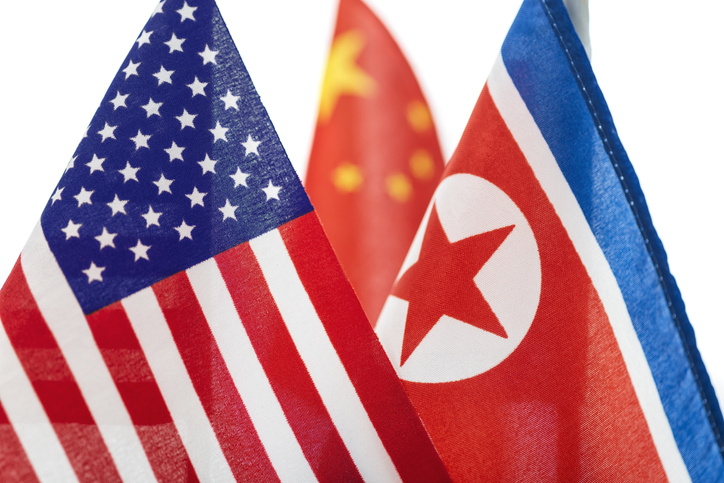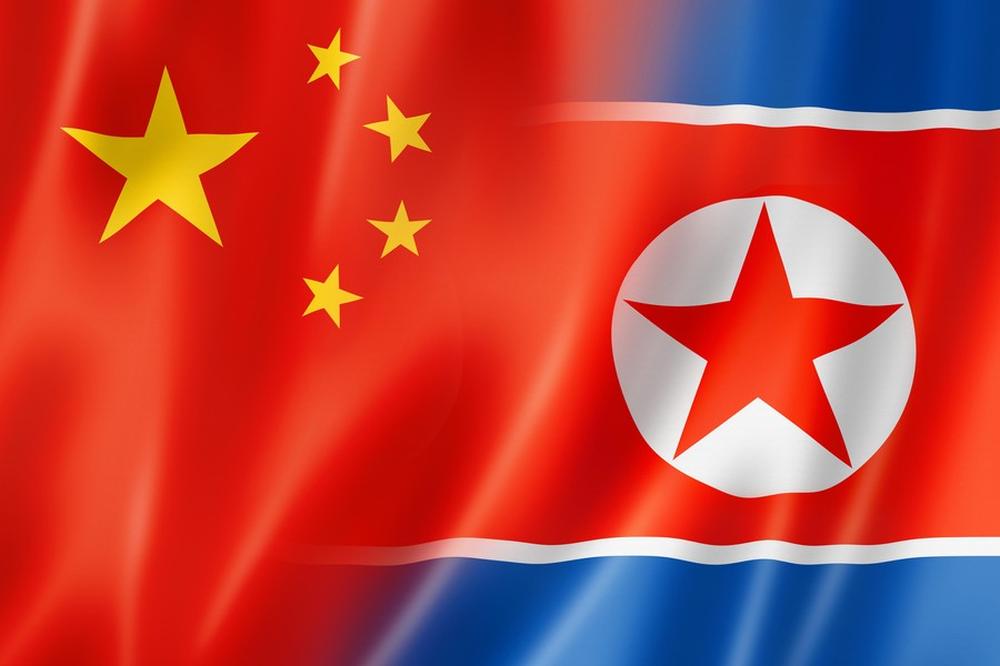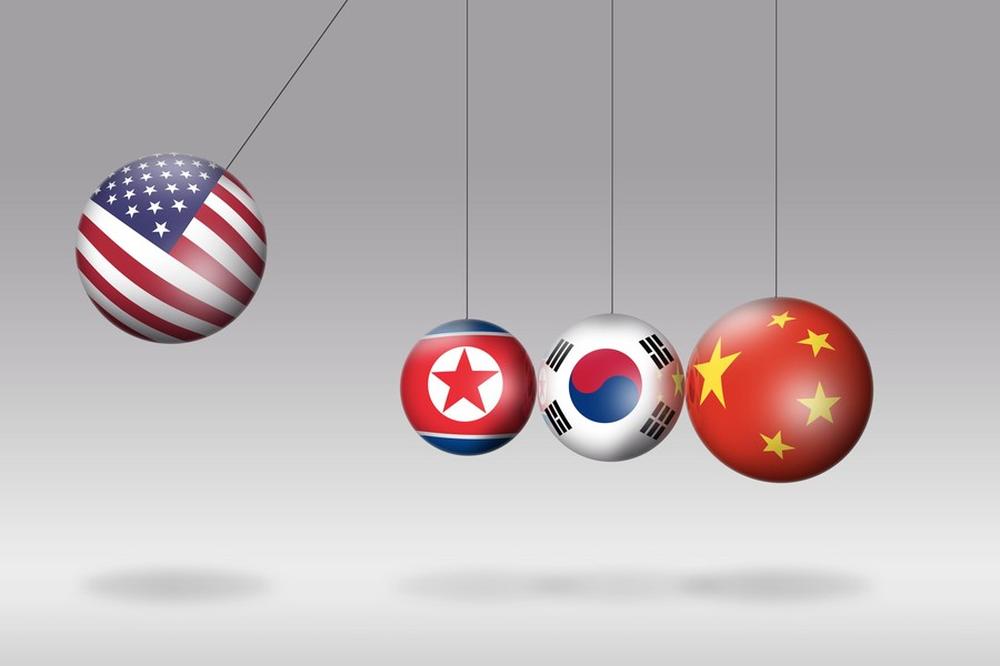- #China
- #North Korea
- #US Foreign Policy

► The Sino-DPRK political relations have recovered in the recent years while their economic ties have troubled by a double whammy: the UN-imposed sanction and the covid-19 pandemic. Thus, recovering their trade and furthering their economic ties will become a top priority on Sino-DPRK relations.
► As the United States holds the key to lifting the sanctions against North Korea, Pyongyang has strong motives to seek an improved relations with Washington through talks in the not-so-remote future.
► Only when the cooperation in pursuing denuclearization of the Korean Peninsula between China and the United States presents a chance for the two nations to stabilize or reverse their worsening relations, China may serve as an active facilitator in the US-North Korea talks.
The Sino-DPRK political relations have recovered in the recent years while their economic ties have troubled by a double whammy: the UN-imposed sanction and the covid-19 pandemic. Thus, recovering their trade and furthering their economic ties will become a top priority on Sino-DPRK relations. As the United States holds the key to lifting the sanctions against North Korea, Pyongyang has strong motives to seek an improved relations with Washington through talks in the not-so-remote future.
The Political Relations Recovered
In the wake of the sixth nuclear test, North Korean top leader Kim Jong Un’s decision to seek a rapprochement with the outside world helped to set in motion the fence-mending effort on the Sino-DPRK relations, which had been deeply troubled by North Korea’s nuclear and missile development since 2006. From March 2018, President Xi Jinping and Chairman Kim Jong Un had met five time. Xi paid a state visit to Pyongyang in June 2019. With the frequent meetings of the top leaders, the political relations between Beijing and Pyongyang have been recovered. Kim Jong Un pledged that “I, firmly holding hands together with Comrade General Secretary, will strengthen and develop the DPRK-China friendship as desired by the peoples of the two countries to be envied by the world, and steadily defend the cause of socialism and preserve peace and stability of the Korean peninsula and the world by dint of friendship and unity.”Xi Jinping confirmed: China will firmly support the DPRK's socialist enterprise; firmly support the implementation of its new strategic line; firmly support a political solution to solving the nuclear issue and materializing lasting peace and security in the peninsula; unswervingly support Chairman Kim in leading the DPRK to implement the new strategic line.
Both China and North Korea agreed to “implement well the important agreement between the two sides, strengthen the strategic communication, expand exchanges and cooperation, give full play to the tradition of friendship and thus promote the fresh and greater development of the China-DPRK relations.”
Message Diplomacy
The quick recovery of political relations was interrupted by the outbreak of the covid-19 pandemic in the early 2019, Xi and Kim had to resort to message diplomacy to strengthen their personal relations. It is not new for Xi and Kim to exchange message on some special occasions in the past years, but they elevated such a practice to a high level with unprecedented frequency and unreserved compliments. Xi and Kim exchanged congratulatory messages two times in 2016 and once in 2017, but the number of message exchanges jumped eight in 2018. Kim sent six messages to Xi, including two thank-you messages in the wake of his visit to China, and Xi sent two messages to Kim. In 2020, Kim Jong Un sent five messages to Xi Jinping, including a letter, one verbal message, three written messages whereas Xi Jinping returned four messages. As of 12 August 2021, the number of message exchange in 2021 has already equaled to the one for 2020, Xi sent five message to Kim and the latter returned four.
The exchange of messages has become a routine between Xi and Kim and helped to make up the absence of their in-person meeting thanks to the ongoing pandemic. The messages sent two key signals to the outside world: Xi and Kim still maintained their frequent contacts during the pandemic; the top leaders still honored their commitments they made in the previous five rounds of meetings and continued to support each other.
Economic Ties Remains Weak
The frequent summits and message exchanges don’t automatically bring significant economic benefits to North Korea. Two things prevent China and North Korea to build a strong and economic relationship even though both countries have the political will to do so. The first hinderance is UN-imposed sanctions, which had effectively choked North Korea’s foreign trade. Even though Beijing and Pyongyang could explore a possibility of expanding their trade legally allowed by the UN Security Council, the potential legal trade is very limited and cannot make up to the loss of trade caused by the sanctions. The second hinderance is covid-19 pandemic, which happened out of the blue and effectively forced NK to shut its border with its neighboring countries. Coupled with extreme weather, the sanctions and pandemic combine to deal a severe blow to the trade between China and North Korea. According to the Chinese customs data, the two-way trading volume between China and North Korea in 2020 plunged by 80.67% on year in 2020 to US$539 million. Based on the Bank of Korea’s estimate, North Korea's economy contracted 4.5 percent during the same period of time. The food shortage is severe in North Korea, Pyongyang admit publicly in its first Voluntary National Review (VNR) report on the Implementation of the 2030 Agenda for Sustainable Development that the food production dropped to its lowest level in 2018 due to “natural disasters and weak resilience, insufficient farming materials and low level of mechanization.”
The economic ties between Beijing and Pyongyang have been badly wrecked by the two whammy and remain significantly weak and lag far behind the political relationship. The asymmetrical development on Sino-DPRK relations is not sustainable. Pyongyang wants to quickly reap economic benefits from its growing political ties with Beijing. There are three ways for China to help North Korea to deal with its economic hardship: to offer necessary humanitarian assistance to North Korea, including food and medicine, covid-19 vaccines and protective gears; to expand legal businesses with North Korea even though the growth space for the trade is quite limited; to campaign for early lifting of the sanctions against North Korea.
It is relativel easy for China to do the first two things, but difficult for China to promote the third item. In the past three years China has made efforts to seek early lifting of the sanctions against North Korea but had achieved little progress. As early as on 12 June 2018, Chinese Foreign Ministry spokesman Geng Shuang for the first time suggested to life sanctions against North Korea. he said:“The U.N. Security Council resolutions that have been passed say that if North Korea respects and acts in accordance with the resolutions, then sanction measures can be adjusted, including to pause or remove the relevant sanctions.” On 16 December 2019, China and Russia tabled a draft resolution to the Security Council, calling for council lift a ban on North Korea exporting statues, seafood and textiles, and ease restrictions on infrastructure projects and North Koreans working overseas. A few days ago, Chinese state councilor and foreign minister Wang Yi reiterated:“given that North Korea has already stopped nuclear and long-range missile tests, its legitimate concerns should be addressed. An effective way to resolve the current deadlock is to lift sanctions imposed on North Korea by the United Nations Security Council.”.
Lifting of Sanctions Hinges on the US
The twist and turn surrounding the call for lifting of the sanctions against North Korea points to a fact that the United States, which has already voted against any sanction-easing proposal, holds the key to lifting the sanctions. The mere fact decides that the negotiation between the United States and North Korea cannot be stalled for ever, but starting the stalled talks is not easy, in addition to old disputes, one new factor is changing two nations’ calculus: the ongoing strategic competition between China and the United States.
The competition has greatly undermined Sino-US cooperation in pursuit of the denuclearization of the Korean Peninsula. North Korea is China’s strategic asset rather than a burden, China has no reason to side with the US to harm North Korea in order to force it to abandon its nuclear weapons in the future. The competition also complicate US-DPRK future negotiation. From the US perspective, North Korea’s stand on the Sino-US rivalry constitute a new critical factor that will determine how far its relations with North Korea can go and whether or not the UN-imposed sanctions should be lifted. From North Korea’s perspective, it has to strike a balance in its relations with China and the US. It will sacrifice its relations with Beijing in order to appease Washington, and it will not take hostile attitude toward the US in order to side with China as long as the US holds the key to the sanction-lifting.
As the US is tightening its race with China in a slew of fields, China has no appetite to encourage North Korea to start talks with the United States, which may result in their diplomatic normalization; as Pyongyang remains China’s one of strategic asset, China has no intention to alienate it as North Korea seeks some kind of deal with the United States. Only when the cooperation in pursuing denuclearization of the Korean Peninsula between China and the United States presents a chance for the two nations to stabilize or reverse their worsening relations, China may serve as an active facilitator in the US-North Korea talks.
Dr Cheng Xiaohe serves as a professor with the School of International Studies, Renmin University of China. His main research focuses lie in the fields of China’s foreign relations in general and China’s relations with neighboring countries in particular. He received his PhD in Political Science from Boston University, M.A. in International Relations from Boston University, and B.A. in International Politics form Fudan University.


